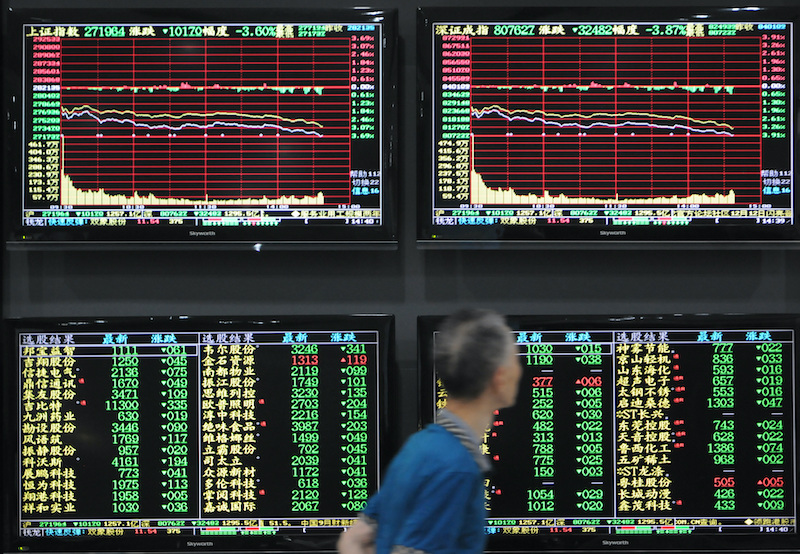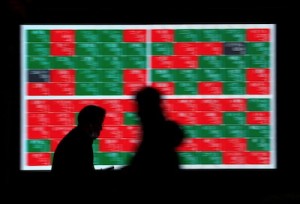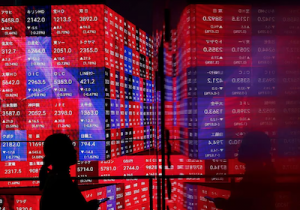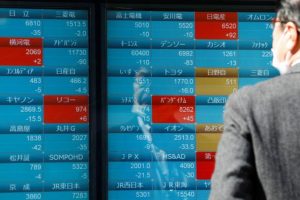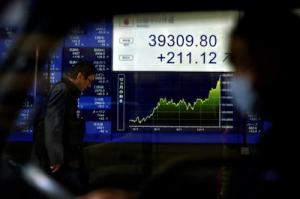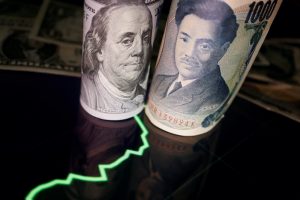Asian stocks rallied on Thursday, lifted by an upturn in US consumer confidence though China’s Covid woes continued to weigh.
The aftershock from the Bank of Japan’s surprise bond yield tweak was still being felt too, with equities rebounding after slumping on the news and powering a yen fightback. Stocks in mainland China were the outlier, though, as Covid cases there surge after Beijing rolled back many of its painful virus curbs.
Japan’s Nikkei index ended higher for the first time in more than a week, as investors bought back shares that had been beaten down by the BOJ’s shock move on Tuesday.
Also on AF: ASML’s Taiwan Expansion Signals Chip Sector’s Next Big Leap
Automaker shares rebounded strongly after the yen showed signs of stabilising, and the real estate sector rallied as long-term bond yields also calmed down after steep climbs.
The benchmark Nikkei 225 index gained 0.46%, or 120.15 points to end at 26,507.87, after dipping as low as 26,269.80 in the previous session for the first time since October 13.
The broader Topix index was up 0.78%, or 14.85 points, to 1,908.17.
“The BOJ decision was a massive surprise but the markets seem to be digesting it bit by bit,” said Masahiro Ichikawa, chief market strategist at Sumitomo Mitsui DS Asset Management.
“For the rest of the year, the Nikkei will probably fluctuate around the current level of about 26,500, but in the new year, the focus should be back on US inflation and the economic outlook.”
Hang Seng Rides Wall Street Wave
Chinese blue chips initially rose 0.6%, boosted after the country’s government revised up its growth forecast for the next fiscal year on hopes for higher business expenditure and substantial wage hikes.
But its Covid challenges continued to dampen any widespread enthusiasm as businesses and factories were forced to close or cut production as virus cases soar.
The Shanghai Composite Index dipped 0.46%, or 13.98 points, to 3,054.43, while the Shenzhen Composite Index on China’s second exchange dropped 0.72%, or 14.21 points, to 1,955.58.
The outlook was more positive in Hong Kong where the Hang Seng Index rallied 2.71%, or 518.73 points, to 19,679.22, riding in the wake of Wall Street’s consumer-confidence inspired boost.
Elsewhere across the region, Indian stocks dropped with Mumbai’s signature Nifty 50 index down 0.47%, or 85.25 points, at 18,113.85.
MSCI’s broadest index of Asia-Pacific shares outside Japan firmed 1.5%, while Chinese blue chips rose 0.6%.
US Consumer Confidence Booster
Globally, stocks were back in the black after that upbeat reading on US consumer confidence which cheered Wall Street investors.
In a surprise, US consumer confidence rose to an eight-month high in December as the labour market remained strong. Inflation expectations fell to 6.7%, the lowest since September 2021, courtesy of falling gas prices.
That helped spark a rally on Wall Street with and Nasdaq futures both adding another 0.3% on Thursday. EUROSTOXX 50 futures rose 0.2% and futures 0.3%, though turnover was subdued by the usual seasonal lull.
Investors continue to grapple with the ramifications of the BOJ’s shock decision to allow government bond yields to rise this week, leading many to assume an outright tightening of policy is only a matter of time.
Ten-year government bond yields had soared 23 basis points this week to 0.480%, the highest since July 2015 and within a whisker of the BOJ’s new ceiling of 0.5%.
US Dollar Drop Forecast
“The jump in yields and the further strengthening of the yen will lower the value of assets owned by Japanese investors,” analysts at Capital Economics said.
“Insurance firms will be most affected by falling bond prices, whereas pension funds have most to lose from a stronger exchange rate. However, we doubt that lower investment returns carry systemic risks.”
Capital also now expects the dollar to drop toward 125 yen next year. The dollar was already down at 131.84 yen, having shed 3.6% for the week so far, though it had found some support around 130.40.
The pullback in the dollar has been a boon for gold, which was up 1.4% on the week so far at $1,818 an ounce.
Oil prices rallied after data showed a larger-than-expected draw in stockpiles, though a massive snowstorm is expected to blanket much of the United States and hit travel-related demand for fuel.
Key figures
Tokyo – Nikkei 225 > UP 0.46% at 26,507.87 (close)
Hong Kong – Hang Seng Index > UP 2.71% at 19,679.22 (close)
Shanghai – Composite < DOWN 0.46% at 3,054.43 (close)
London – FTSE 100 > UP 0.51% at 7,535.40 (0940 GMT)
New York – Dow > UP 1.60% at 33,376.48 (close)
- Reuters with additional editing by Sean O’Meara
Read more:
Soaring Dollar’s Bull Run Ends as BOJ Comes in From The Cold
Corporate China in ‘Deep Trouble’ as Covid Infects Workforce




